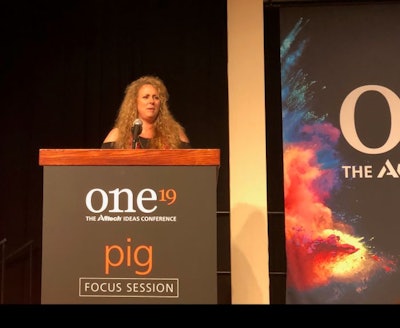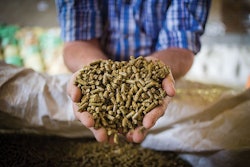
From the emergence of new agricultural technologies to strategies for fighting antimicrobial resistance, the 2019 edition of the Alltech ONE Ideas Conference addressed many issues critical to the global feed and food industries.
Despite the broad scope of program, one sentiment came up several times: being mired in “tradition” is one of the main challenges hindering the advancement of agriculture. Specifically, the belief that this is the way things have always been done so that’s the way they should stay was described as “the biggest competitor to food production.”
Couple this with pervasive consumer interest in the feed-to-farm-to-fork supply chain and vocal, well-funded proponents, production agriculture’s historic guardedness has fostered an environment for distrust and misinformation about how the world’s food is produced.
Now, it should be noted that many of the large agribusiness corporations have made significant strides to promote transparency over the past decade; however, it also falls on the farmer to shed light on the realities of animal protein production.
The use of social media is a key tool for informing and influencing consumer opinions.
During the ONE swine breakout session, Cristen Clark, a farmer, writer and food blogger for FoodandSwine.com, urged ag industry stakeholders to influence the dialogue among consumers by telling agriculture’s story.
“It's up to us – no matter how big or small your role is in the food and farmer conversation – it’s important to share our story,” Clark said, stressing food producers to take farm communication to the next level to control the narrative.
Quoting one of her farmer friends: “We will lose if we think facts alone will win.”
According to the Center of for Food Integrity’s research, communicating shared values is three to five times more effective than leading with your credentials, i.e. experience, abilities.
Clark suggests dropping your “ag title and picking up your human title” and instead focus on commonalities and shared values “make connections and create bridges” when engaging in conversations about the truths of food production.
3 trends influencing consumer perceptions of animal agriculture
Consumers want to know more about their food’s provenance. Clark identified three key consumer trends worth keeping in mind while you do your part to promote the truths of animal agriculture.
-
“Legislative” brands
As defined by TrendWatch, legislative brands are defined as “corporate interests using their significant power to call for, promote and even impose laws that drive constructive change and make the world a better place.”
Clark cited several examples of producers (see list below) using social media platforms and their following to make a stand regarding the promotion of social issues, e.g. plight of illegal immigrants and diversity of rural America.
-
The beauty of food vs. the humanity of food
Take the idea of social media food glamour shots and apply it to “the stories of food,” which gives ag communicators a great advantage to talk about the “what and why” of production.
“Seventy-two percent of millennials prefer to spend money on experiences rather than things,” she said, noting that this presents a chance to share personal stories and relate your work to the “humanity of food.”
-
Transparency 2.0
Consumers want to know how food is produced, so step up your communication.
“People are hungry not only for the food but the story behind it,” Clark said, citing two interesting stats:
- Seventy-eight percent of consumers think it is important to extremely important that grocery stores or restaurants provide information about how and where their food is grown.
- Fifty-nine percent of millennials will stop buying a product if they feel the company is engaged in unethical practices.
Clark promotes “breaking tradition and achieving more by sharing your story.”
“Reach out and use social media for creating a larger digital footprint,” she said.
To see these efforts in action, check the agvocates mentioned during Clark’s presentation on Twitter:
Cristen Clark @FoodandSwine1
Lukas Fricke @LukasFricke
Jay Hill @hilljay45
Carrie Mess @dairycarrie
Daniel Hayden @dhayden1999
The 2019 Alltech ONE Ideas Conference was held in Lexington, Kentucky, May 19-21. The three-day event hosted 3,500 delegates from 70 countries. For more information, visit one.alltech.com.

















